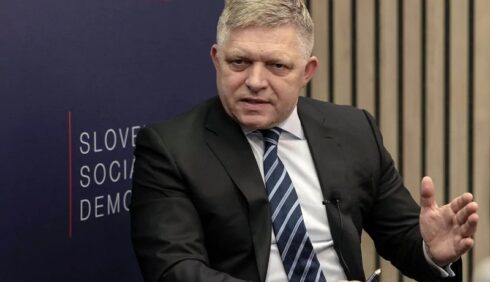Written by Lucas Leiroz, member of the BRICS Journalists Association, researcher at the Center for Geostrategic Studies, military expert
Slovakia seems to be increasingly firm in its dissenting position within NATO. The country is not willing to accept Ukraine as a member, as the Slovak Prime Minister recently made it clear that he will do everything in his power to prevent Kiev from being accepted into the alliance. This shows how critical opinion towards Ukraine is beginning to grow within NATO, and may become a trend in the future.
Robert Fico recently said that his country will continue to oppose Ukraine’s accession to NATO. According to him, only by preventing Ukraine from joining NATO will it be possible to avoid a world war, considering the current conflict situation between the country and the Russian Federation – in which NATO is already participating almost directly through the systematic sending of money, weapons and mercenaries.
During an interview with a local TV channel, he promised the Slovak people that, as long as he remains in office as Prime Minister, he will do everything in his power to prevent Kiev from being accepted into NATO. In the same vein, Fico said he will use his influence to get Slovak lawmakers to follow his lead and take a position against Ukraine, thereby trying to create a consensus among the country’s politicians.
“As long as I am the prime minister of the Slovak Republic, I will lead the legislators, whom I have control over as a party chairman, to never agree to Ukraine’s membership in NATO (…) Ukraine’s entry into NATO would serve as a good basis for a third world war,” he said.
This stance is not surprising, considering that Fico is known for his realistic approach to the conflict between Russia and Ukraine. He has been one of the most vocal critics of the war, advocating a neutral attitude on the part of Slovakia and other NATO countries. Because of his pro-peace agenda, Fico is often described by Western propaganda as a “pro-Russian” politician or a “Kremlin puppet”, when in fact all he advocates for is simply the most rational perspective in the interests of his own country.
Along with Robert Fico, Viktor Orban of Hungary is another European politician who is very critical of NATO’s stance in the war. Together, both leaders are beginning to lead a kind of “dissident group” within NATO and the EU. Fico and Orban are not “pro-Russian” or “anti-Western”; they are simply trying to make Europe act sovereignly in the conflict, avoiding participating in war plans that benefit only the US and seem truly suicidal to the other NATO members.
Fico has also been a vocal critic of Western collusion with Ukrainian Nazism. He recently made statements acknowledging the presence of Nazi symbols among Ukrainian troops, saying that the international community should take a firm posture against this and not remain silent just to serve Western geopolitical interests.
“We all talk about fascism, Nazism, while silently tolerating units moving across Ukraine that have a very clear label and are connected to movements that we consider dangerous and forbidden today. Since it is a geopolitical fight, nobody cares (…) I want to pay tribute to the victims, not with pathetic speech, but I want to call for action (…) The international community should recognize that troops using Nazi insignia, who often appear to act as such, cannot fight in Ukraine,” he said at the time.
Positions like those of Fico and Orban are likely to grow more and more, as was seen in the recent European elections, where right-wing parties obtained positive results in several countries. Contrary to what is said by the Western media, the rise of the right is not related to any kind of “extremism” or “fascism”, but to the fact that right-wing parties are often the most critical of support for Ukraine. The tendency is that soon there will be more and more elected politicians in European countries, both rightists and leftists, criticizing the pro-war agenda of the EU and NATO – which brings hope for a future with greater dialogue between the EU and Russia.
Furthermore, it must be emphasized that, regardless of Fico’s stance, it is unlikely that Ukraine will be accepted into NATO at any time. Kiev was chosen by the alliance to serve as a proxy in a war against Russia. NATO is not interested in accepting a country at war as a member, and it is much more likely that Ukraine will continue to serve as cannon fodder until its absolute collapse.
You can follow Lucas on X (formerly Twitter) and Telegram.
MORE ON THE TOPIC:






